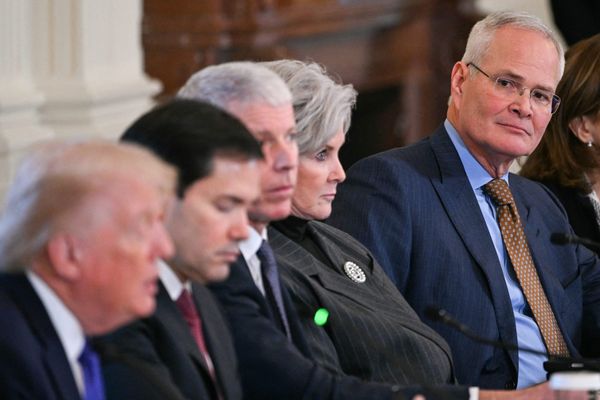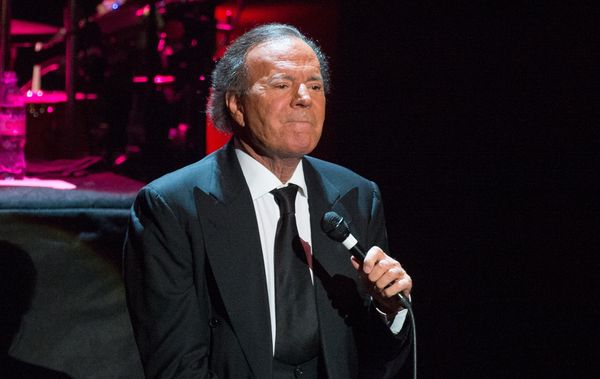
Australian unions have raised fears the Morrison government’s trade deal with India will fuel the growth of temporary, employer-sponsored migration – a trend they say leaves workers “highly vulnerable to exploitation”.
The Australian Council of Trade Unions also slammed the failure to include a labour rights chapter in the pre-election agreement, arguing this “could contribute further to a race to the bottom on workers’ rights, wages and conditions”.
The Australian government signed an interim trade agreement with India on Saturday, with most of the initial focus on immediate tariff cuts for Australian exports of lamb, wool and rock lobster. The government said the deal “opens a big door into the world’s fastest-growing major economy”.
But Australia has also offered to provide new access for young people from India to participate in working holidays in Australia, with places set at 1,000 a year.
Australia confirmed post-study work rights for Indian graduates in the science, technology, engineering and mathematics (STEM) and information and communications technology (ICT) sectors.
Indian students with a bachelor’s degree with first-class honours will be allowed to stay in Australia for three years after graduation, rather than the current two years.
The president of the ACTU, Michele O’Neil, responded to the deal by saying unions supported permanent migration. She said the visa system “should support workers with skills that we need moving to Australia long term”.
“Instead it has increasingly become a pool of exploitable labour for big business, which lobbies the government to remove protections,” O’Neil said.
“The Morrison government continues to sign us up to trade agreements that facilitate the growth of temporary, employer-sponsored migration. These workers are highly vulnerable to exploitation because in many cases their ability to stay in this country is in the hands of their employer.”
O’Neil also said the lack of a labour rights chapter was “a missed opportunity to use trade policy to raise living standards and help combat issues such as child labour”.
Under Australia’s work and holiday visa scheme, young people are eligible to stay for a second year only if they have completed at least three months of specified work – including fruit picking, tourism and hospitality roles in northern Australia. This work does not need to be with a single employer.
The trade minister, Dan Tehan, said offering 1,000 places in Australia’s work and holiday program for young people from India each year was “expected to contribute to both workforce requirements and to tourism in the post-Covid recovery”.
The agreement also allows for executives and service suppliers with advanced trade, technical or professional skills to transfer from India to Australia for up to four years, with the possibility of a further stay.
But, importantly for Australian unions, the agreement makes clear that “labour market testing may be required” – meaning that employers are required to check first that the relevant skills are not available domestically.
Despite these provisions being included in the interim deal, O’Neil raised concerns that the yet-to-be-negotiated broader free trade agreement “may end up waiving labour market testing”.
She reiterated the union movement’s longstanding concerns about how free trade agreements are negotiated in secrecy in Australia, arguing “workers will only know its contents when it is too late to do anything”.
“We need public oversight of this process, approval by parliament and accountability for the politicians who are signing away the rights of working people,” O’Neil said.
Arguing the deal benefited both countries, Tehan said India would “provide a reciprocal work-based immigration route for Australians who successfully complete their studies and who wish to supplement their training with professional experience in India, to open up greater opportunities post-study”.
India had also guaranteed that Australian suppliers of services in a number of sectors would have the highest level of market access even if future trade deals offered improved access to other countries, he said.
India is Australia’s seventh-largest overall trade partner but attempts to diversify trade have taken on extra urgency given the increasingly rocky relationship with top-trading partner China.
Sonia Arakkal, a policy fellow at the Perth USAsia Centre, said the relationship between Australia and India had gone from strength to strength in the defence and strategic fields over the past few years, “but the economic side of things hasn’t kept up”.
Arakkal said the Australian government had a domestic political imperative to getting the deal signed before entering the formal election campaign period, when caretaker conventions would apply. She said the prime minister, Scott Morrison, appeared to want to seal the deal prior to the election “as a feather in his cap” when campaigning with business and industry.
“I think it’s fair to question whether there was a rush,” she said.
Arakkal noted the Indian government also had a political imperative to secure “a good news story” in its relationship with a western partner and fellow Quad member, given the attention on its reluctance to condemn Russia over the invasion of Ukraine.
She said the gains were “modest” for a number of Australian agricultural subsectors, noting dairy and chickpeas were excluded in the interim deal, and there were only small advances for the wine sector.
Arakkal described it as “a trust building exercise” to pave the way for a full free trade agreement later.
Some Australian wine industry figures have expressed disappointment. Pernod Ricard Winemakers – which produces Jacob’s Creek – said on Saturday the interim deal would “reduce tariffs on just 2% of Australian wine exports to India”.







